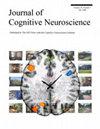Entities, Uncertainties, and Behavioral Indicators of Consciousness
IF 3.1
3区 医学
Q2 NEUROSCIENCES
引用次数: 0
Abstract
Two problems related to the identification of consciousness are the distribution problem—or how and among which entities consciousness is distributed in the world—and the moral status problem—or which species, entities, and individuals have moral status. The use of inferences from neurobiological and behavioral evidence, and their confounds, for identifying consciousness in nontypically functioning humans, nonhuman animals, and artificial intelligence is considered in light of significant scientific uncertainty and ethical biases, with implications for both problems. Methodological, epistemic, and ethical consensus are needed for responsible consciousness science under epistemic and ethical uncertainty. Consideration of inductive risk is proposed as a potential tool for managing both epistemic and ethical risks in consciousness science.实体、不确定性和意识的行为指标。
与意识识别相关的两个问题是分布问题--即意识在世界上如何分布以及在哪些实体中分布;以及道德地位问题--即哪些物种、实体和个体具有道德地位。本文从重大的科学不确定性和伦理偏见出发,探讨了如何利用神经生物学和行为学证据的推论及其混淆物来识别非典型功能的人类、非人类动物和人工智能中的意识,以及对这两个问题的影响。在认识论和伦理学的不确定性下,负责任的意识科学需要方法论、认识论和伦理学方面的共识。建议考虑归纳风险,将其作为管理意识科学中认识论和伦理风险的潜在工具。
本文章由计算机程序翻译,如有差异,请以英文原文为准。
求助全文
约1分钟内获得全文
求助全文
来源期刊
CiteScore
5.30
自引率
3.10%
发文量
151
审稿时长
3-8 weeks
期刊介绍:
Journal of Cognitive Neuroscience investigates brain–behavior interaction and promotes lively interchange among the mind sciences.

 求助内容:
求助内容: 应助结果提醒方式:
应助结果提醒方式:


